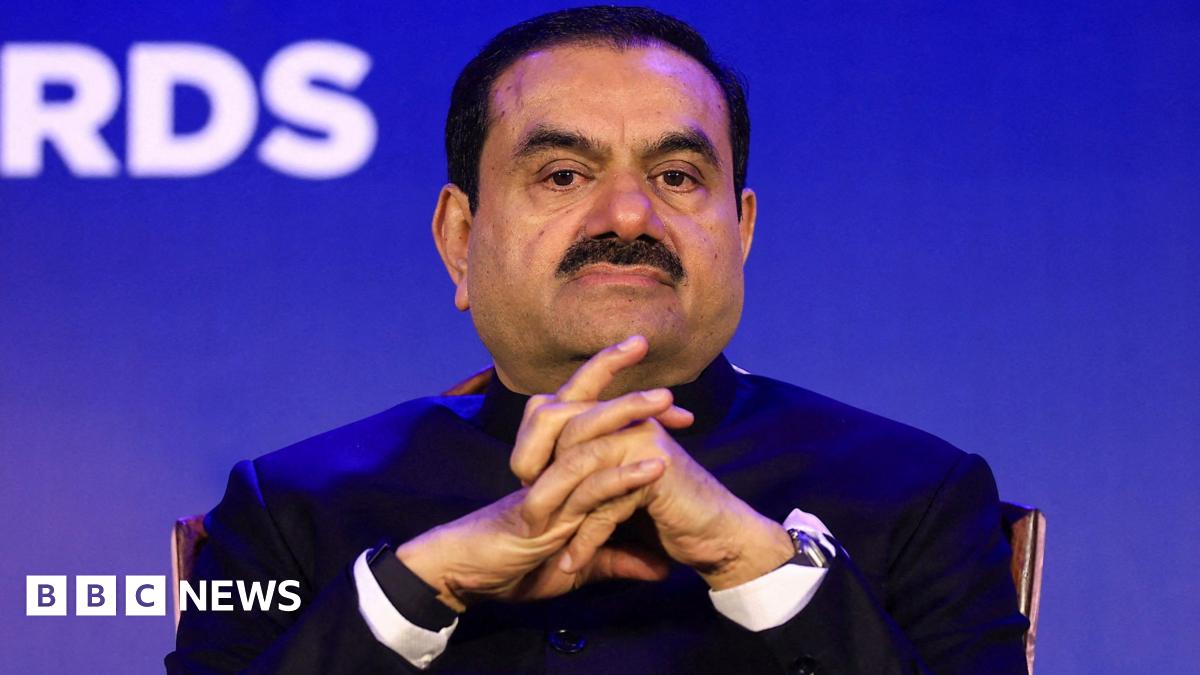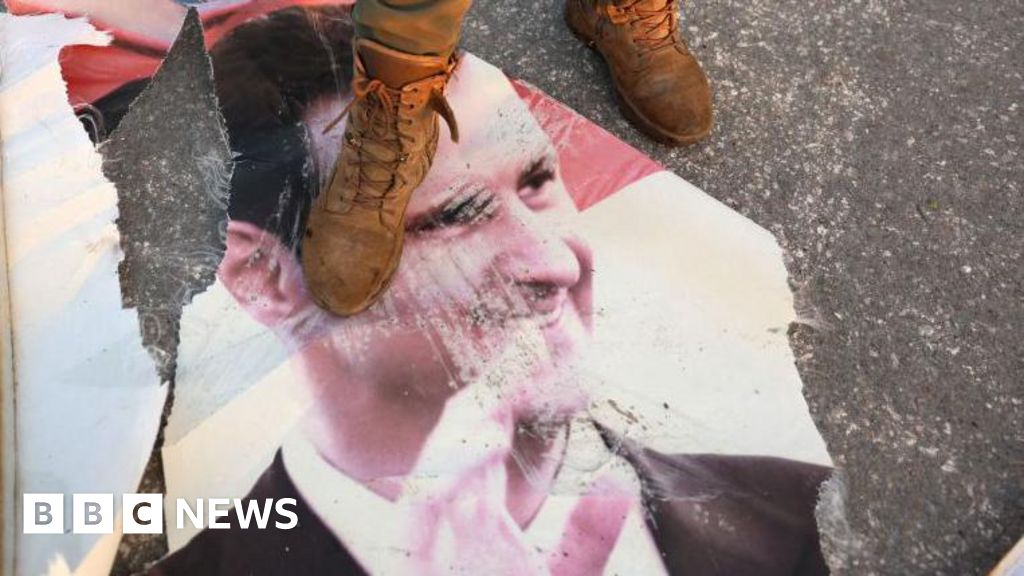Gautam Adani has vowed to invest $100bn (£78.3bn) in India’s energy transition. Its green energy arm is the country’s largest renewable energy company, producing nearly 11GW of clean energy through a diverse portfolio of wind and solar projects.
Adani has a target to scale that to 50GW BY 2030, which will make up nearly 10% of the country’s own installed capacity.
Over half of that, or 30GW, will be produced at Khavda, in the western Indian state of Gujarat. It is the world’s biggest clean energy plant, touted to be five times the size of Paris and the centrepiece in Adani’s renewables crown.
But Khavda and Adani’s other renewables facilities are now at the very centre of the charges filed by US prosecutors – they allege that the company won contracts to supply power to state distribution companies from these facilities, in exchange for bribes to Indian officials. The group has denied this.
But the fallout at the company level is already visible.
When the indictment became public, Adani Green Energy immediately cancelled a $600m bond offering in the US.
France’s TotalEnergies, which owns 20% of Adani Green Energy and has a joint venture to develop several renewables projects with the conglomerate, said it will halt fresh capital infusion into the company.
Major credit ratings agencies – Moody’s, Fitch and S&P – have since changed their outlook on Adani group companies, including Adani Green Energy, to negative. This will impact the company’s capacity to access funds and make it more expensive to raise capital.
Analysts have also raised concerns about Adani Green Energy’s ability to refinance its debt, as international lenders grow weary of adding exposure to the group.
Global lenders like Jeffries and Barclays are already said to be reviewing their ties with Adani even as the group’s reliance on global banks and international and local bond issues for long-term debt has grown from barely 14% in financial year 2016 to nearly 60% as of date, according to a note from Bernstein.
Japanese brokerage Nomura says new financing might dry up in the short term but should “gradually resume in the long term”. Meanwhile, Japanese banks like MUFG, SMBC, Mizuho are likely to continue their relationship with the group.
The “reputational and sentimental impact” will fade away in a few months, as Adani is building “solid, strategic assets and creating long-term value”, the unnamed CEO said.





